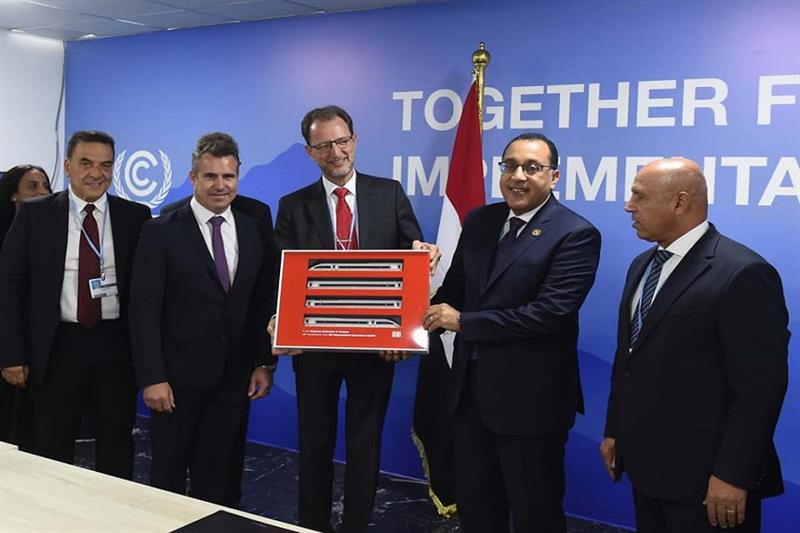Egypt signs contract with German Deutsche Bahn to operate first high-speed electric railway
Egypt signed on Tuesday a contract with a consortium of German railway company Deutsche Bahn (DB) and the Egyptian private-sector company El-Sewedi Electric to manage and operate the first line of the country’s first high-speed electric train network.

The contract was initialed by head the Egyptian National Authority for Tunnels (NAT), the head of DB and the head of El-Sewedi in the presence of Egyptian Prime Minister Mostafa Madbouly on the sidelines of the third day of the UN climate gathering in the Red Sea city of Sharm El-Sheikh.
The contract extends for a period of 15 years, with the option of another 15 year-extension, according to a cabinet statement.
In May 2022, Egypt signed a contract with German Siemens Mobility to build about 2,000 kilometres of high-speed rail in the country at an estimated total cost of EGP 360 billion ($23 billion).
The project is part of the country’s efforts to develop green transportation in order to tackle climate change, improve mobility for its population, reduce emissions and ease traffic congestion.
The first line – which DB will operate – will stretch for 660 kilometres, linking Ain Sokna city on the Red Sea with both Alexandria and Marsa Matrouh on the Mediterranean.
The second line will stretch 1,100 kilometres, linking Cairo in the north with Aswan’s Abu Simbel in the south, while the third line will connect Luxor in Upper Egypt with Hurghada on the Red Sea.
The rail lines will connect 60 cities nationwide via trains that can operate at up to 230 km/hour.
The network, which will be accessible by around 90 percent of Egyptians, will provide an estimated 500 million journeys annually.
Egypt will pay for the project over a period of 14 years, starting six years after the beginning of construction.
The project will be the sixth largest of its kind in the world, according to the German train manufacturer.
Source:english.ahram.org.eg/News
